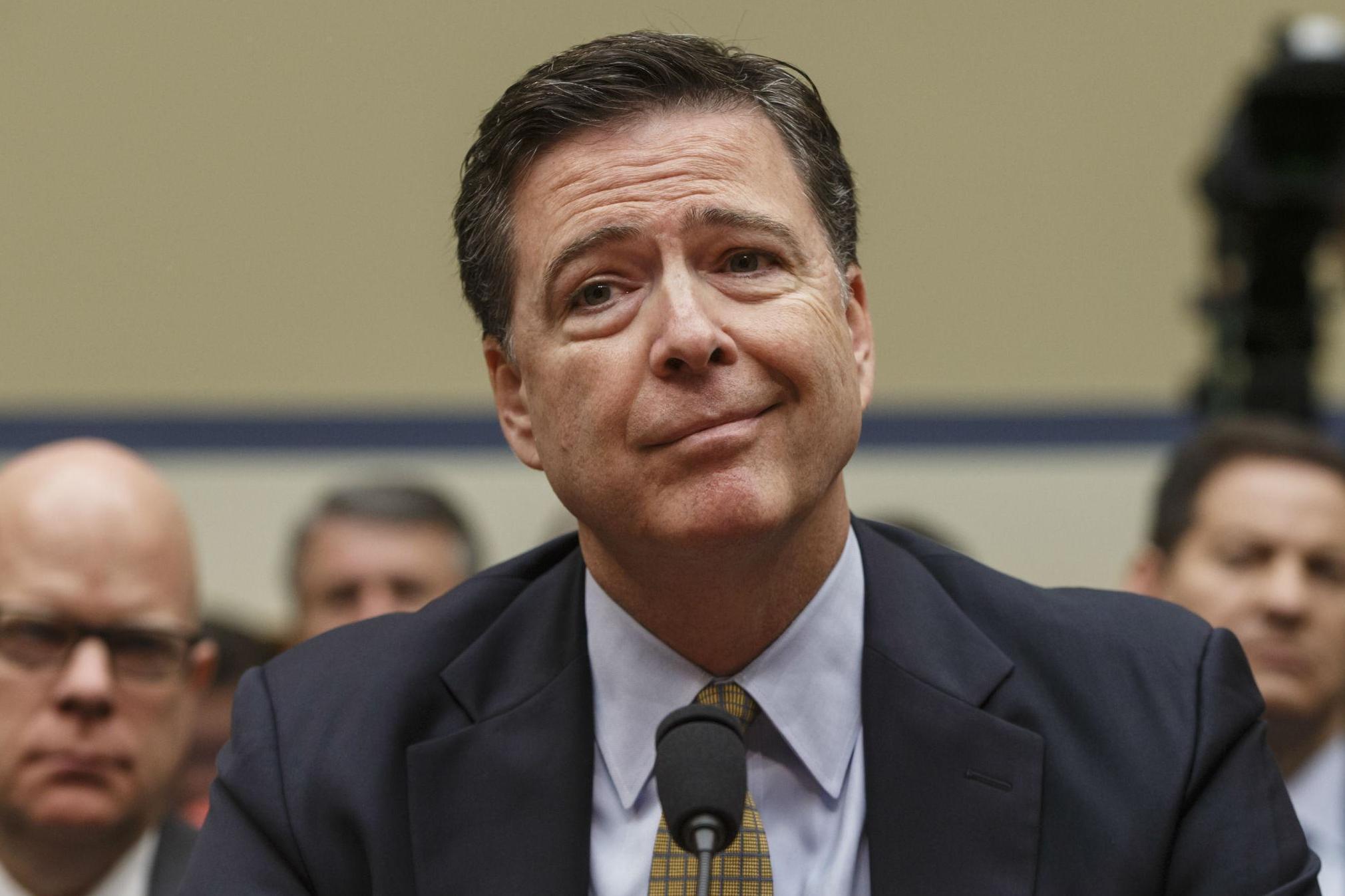Hillary Clinton emails: Republicans accuse FBI Director of setting ‘dangerous precedent’ by not recommending charges
James Comey testified at a congressional hearing that the FBI’s investigation was conducted ‘in an apolitical and professional way… by people who didn’t give a hoot about politics.’

Your support helps us to tell the story
From reproductive rights to climate change to Big Tech, The Independent is on the ground when the story is developing. Whether it's investigating the financials of Elon Musk's pro-Trump PAC or producing our latest documentary, 'The A Word', which shines a light on the American women fighting for reproductive rights, we know how important it is to parse out the facts from the messaging.
At such a critical moment in US history, we need reporters on the ground. Your donation allows us to keep sending journalists to speak to both sides of the story.
The Independent is trusted by Americans across the entire political spectrum. And unlike many other quality news outlets, we choose not to lock Americans out of our reporting and analysis with paywalls. We believe quality journalism should be available to everyone, paid for by those who can afford it.
Your support makes all the difference.FBI Director James Comey has faced a grilling from congressional Republicans, who were angered by his decision not to recommend criminal charges against Hillary Clinton for her use of a private email server during her tenure as Secretary of State.
Mr Comey, called to attend a hastily convened hearing at the Capitol in Washington DC on Thursday, was accused of having set a “dangerous precedent” that would permit government officials to handle classified information “sloppily” without fear of consequence.
Utah congressman Jason Chaffetz, the chairman of the House Oversight and Government Reform committee, suggested in his opening statement that Ms Clinton, the presumptive Democratic presidential nominee, had escaped prosecution solely because she was “part of the powerful elite”.
Announcing the findings of the FBI’s probe on Tuesday, Mr Comey said Ms Clinton and her aides at the US State Department had been “extremely careless in their handling of very sensitive, highly-classified information.”
But, he added, “We did not find clear evidence that Secretary Clinton or her colleagues intended to violate laws governing the handling of classified information.” Their conclusion, he said, was that “no charges are appropriate in this case.”
US Attorney General Loretta Lynch accepted the recommendations of the FBI and prosecutors, closing the criminal case against Ms Clinton and outraging Republicans, many of whom had hoped for an indictment to derail the Democrat’s presidential bid.
Republican House Speaker Paul Ryan wrote to James Clapper, the Director of National Intelligence, requesting he deny Ms Clinton access to classified information for the duration of the 2016 campaign. He argued she should not be given top secret intelligence briefings, as is common practice for presidential contenders, given her past "carelessness" with such information.
“There is no legal requirement for you to provide Secretary Clinton with classified information, and it would send the wrong signal to all those charged with safeguarding our nation's secrets if you choose to provide her access to this information despite the FBI's findings,” Mr Ryan wrote.
At Thursday’s hearing Mr Chaffetz, also a Republican, told Mr Comey: “It seems to a lot of us that the average Joe, the average American – if they had done what you laid out in your statement, that they’d be in handcuffs.”
In his testimony to the committee, the FBI Director insisted the agency's investigation of Ms Clinton’s emails and email practice had been conducted competently, honestly and “in an apolitical and professional way… by people who didn’t give a hoot about politics.”
Mr Comey confirmed that some of Ms Clinton's past statements regarding her emails had been untrue, including her insistence that she had not sent or received any messages marked as classified. The FBI investigation in fact found three documents marked as classified on her private server.
However, he went on, the evidence also suggested that the former Secretary of State was not “particularly sophisticated with respect to classified information and the levels and treatment”, nor was she “as technically sophisticated as others might assume”, given her status.
Democrats on the committee praised the FBI Director for his probity. Maryland congressman Elijah Cummings said the investigation had been “extremely thorough” and insisted Republicans were so irate only because it had not reached the “predetermined outcome that they wanted”.
Himself a Republican, Mr Comey served as Deputy US Attorney General under President George W Bush, and earned a reputation for integrity after a 2004 showdown with the White House, when he refused to reauthorise the warrantless wiretapping of US citizens.
Mr Comey, along with several other Justice Department and FBI officials, threatened to resign in protest over the issue, eventually relenting after the White House made changes to the eavesdropping programme, which he ultimately endorsed as legal.
At the hearing over the Clinton emails investigation, the FBI Director made clear he was aware of the political importance of the probe and the subsequent decision not to propose charges against a presidential candidate. Asked if he had been surprised by the sharp criticism of his conclusions, he said: “I’m not surprised by the intense interest and the debate."
Join our commenting forum
Join thought-provoking conversations, follow other Independent readers and see their replies
Comments